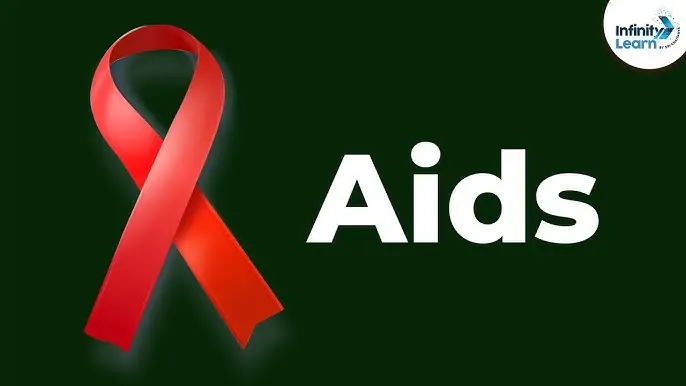Zero Discrimination Day: Stand Together for Equality, Justice and Health
March 1 is observed globally as Zero Discrimination Day, a call to action to reaffirm our commitment to a people-centered HIV response because protecting everyone’s rights, particularly the most vulnerable and marginalized, is essential to ensuring universal access to health.
This year’s theme, “We Stand Together,” is a call for solidarity to eliminate all forms of discrimination and build a more just and equitable society. It is an opportunity to reassert the right of every individual to live a full, productive, and dignified life—free from stigma, exclusion, and harm. We can only do this if we pull together, stand together, act together and solidarize in our community action.
Addressing Inequalities to End AIDS
In the Caribbean, discrimination and inequalities continue to fuel the HIV epidemic. Thus, despite scientific advancements and increased access to treatment, punitive laws, discrimination, and social stigma affect sex workers, men who have sex with men (MSM), transgender people, people who use drugs, and incarcerated individuals from accessing services. Without addressing discrimination, it will be impossible to end AIDS as a public health threat by 2030 in the Caribbean.
Over 100,000 people living with HIV in the Caribbean are not yet in care and treatment. Civic spaces are shrinking due to pushbacks on gender and human rights issues as well as reduced funding which have the potential to reverse our public health success in the region. In this uncertain landscape, the Caribbean HIV response must remain strategic, focused, and relentless. Many individuals still face harassment, violence, and exclusion from essential services, creating an environment where individuals are afraid to seek healthcare.
We cannot stand for the principle of leaving no one behind if we do not stand together as individuals, communities, partners and nations to solve these challenges together in solidarity and mutual collaboration. Already, there are encouraging signs which show it is possible to create a more inclusive, rights-based approach to addressing public health challenges in the Caribbean. These include successful anti-discrimination campaigns, strengthened community networks, notable victories in securing legal protections for LGBTQ+ individuals and reforming HIV transmission and non-disclosure laws. But much work remains to be done to end discrimination and human rights violations that continue to fuel the region’s HIV epidemic.
This Zero Discrimination Day serves as a wake-up call, to focus on four key priorities: a) defending human rights, b) protecting civil society spaces and amplifying community voices, c) putting people first in public health and d) strengthening international cooperation and solidarity.
To make progress, there must be strengthening of legal protections mechanism to champion human rights in line with the Paris Principles to benefit everyone, especially the most vulnerable in society. Community-led legal advocacy efforts must be supported to protect the rights of marginalized groups. Governments must repeal discriminatory laws that create barriers to accessing HIV services. There needs to be training for healthcare workers and community sensitization programs must be implemented to prevent HIV-related stigma and discrimination.
Amplifying Community Leadership for Health & Rights
People living with and most affected by HIV are vital to sustaining the HIV response and broader global health efforts given their work to deliver health services, advocating for policy reforms, and ensuring accountability. They remain unwavering in their commitment to ensuring that everyone receives care with dignity and respect. A Caribbean HIV response without civil society leadership is a failed response. Communities must be at the center of decision-making, service delivery, and advocacy. However, a plethora of challenges, including shrinking civic spaces and limited funding, and police harassment threaten the ability of these organizations to play their watchdog role effectively.
To meet 2030 HIV targets, sustained investment in community-led responses is crucial. Therefore, governments must protect and fund CSOs and include them in national HIV strategy planning and implementation for greater impact, including for long-term sustainability, National HIV budgets must allocate direct funding to community-led organizations to ensure continuity when external donors reduce support. Furthermore, there must be legal protections for human rights defenders working to advance social justice and public health.
Putting People First: A Public Health Imperative
A people-centered HIV response is critical to ending AIDS in the Caribbean. Communities of people living with and most affected by HIV must be an integral part of the efforts to improve health outcomes. Similarly, policies and programs must consider the needs and priorities of individuals in different settings. We need health and family life education to be evaluated and fully implemented to help reduce HIV infections, teenage pregnancies, and gender-based violence. To reduce new HIV infections, Governments must expand and increase investment in PrEP, including long-acting HIV prevention methods, and make them accessible to all who need them. The healthcare system must be reformed to provide stigma-free and non-discriminatory care for all.
The message for Zero Discrimination Day 2025 is clear:
- We must stand together to end the HIV epidemic in the Caribbean through the fearless defense of human rights.
- We must stand together to ensure civil society organizations are supported, funded, and empowered.
- We must stand together to ensure public health policies put people first and are driven by evidence, not stigma and discrimination.
- We must stand together to strengthen regional cooperation and maintain solidarity to ensure a sustainable HIV response for the whole of the Caribbean.
This Zero Discrimination Day, we stand together and act with unity and determination to build a Caribbean where no one is left behind.



